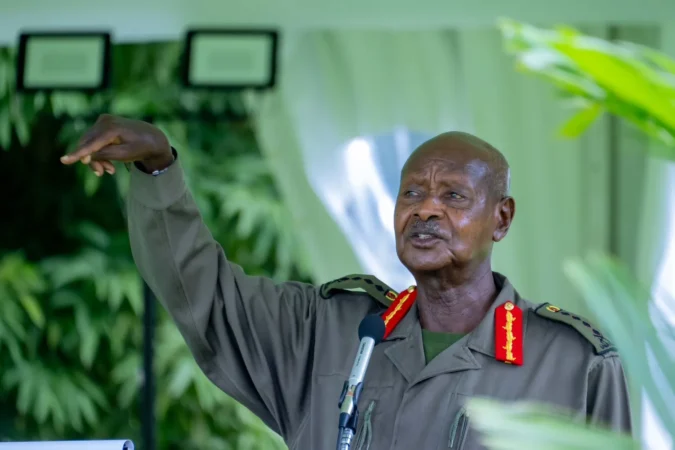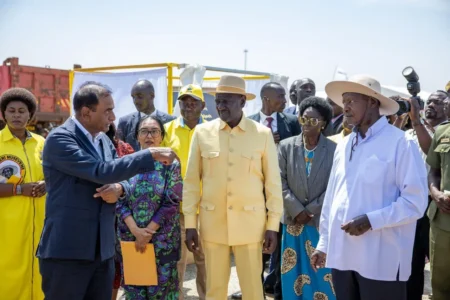KAMPALA, Uganda — President Yoweri Museveni and First Lady Janet Museveni publicly apologized to the Ugandan people for errors committed during their 39-year tenure.
During the Light Up Uganda for Jesus Crusade at Kololo Independence Grounds, the couple jointly acknowledged shortcomings both personal and those perpetrated by individuals acting on their behalf.
The Musevenis expressed remorse and requested forgiveness, specifically from the people of Buganda and the wider Ugandan population.
“We humbly take responsibility for all the mistakes made by ourselves, our agents, and representatives. We, therefore, stand here to repent and ask for your forgiveness, especially the people of Buganda and the whole country,” the couple stated.
In a plea directed towards both God and the citizens of Uganda, they called for reconciliation and a return to the principles that once unified the nation.
“God restore the favor that we had with them in the beginning; bring healing to their hearts, soften the hardened hearts, and reconnect us to the original vision of our national unity and unwavering commitment to social and economic transformation of our nation together,” they added.
Following the overthrow of Idi Amin in 1979, Museveni briefly participated in transitional governments, but became disillusioned with the political landscape after the contested 1980 elections.
Consequently, he established the National Resistance Movement (NRM) and its military arm, the National Resistance Army (NRA), initiating a guerrilla war against Milton Obote’s administration.
The conflict, known as the Ugandan Bush War, persisted until 1986, when the NRA seized Kampala, and Museveni was inaugurated as president.
Upon assuming office, Museveni was initially praised for stabilizing a nation plagued by coups and authoritarian rule. He prioritized healthcare and education, yielding notable advancements in public health and literacy rates.
However, over time, his presidency has been characterized by increasing authoritarian tendencies. He has faced criticism for suppressing political dissent, manipulating electoral procedures, and altering the constitution to eliminate term and age limitations. Sources







